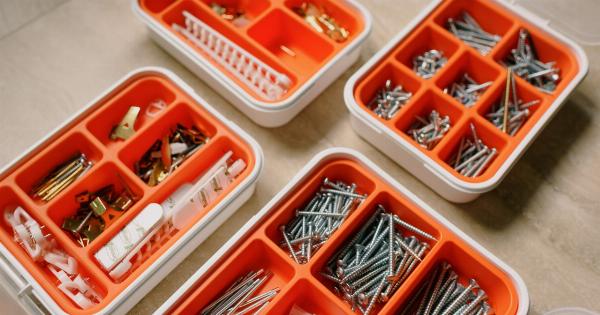Allergies can be a real nuisance and can significantly impact your daily life. From itchy eyes and a runny nose to sneezing and coughing, allergies can make you feel miserable.
But don’t worry, there are several simple and effective tips that you can follow to say goodbye to allergies once and for all. In this article, we will discuss these tips and help you find relief from allergies.
1. Keep your home clean
Dust and allergens tend to accumulate in our homes, so it’s crucial to keep your living space clean. Regularly dusting surfaces, vacuuming carpets and upholstery, and washing your bedding can help reduce allergens in your home.
Use a damp cloth or a microfiber cloth to clean surfaces, as dry dusting can often spread allergens in the air.
2. Invest in allergen-proof bedding
Your bedding can harbor dust mites and other allergens, which can trigger allergies. To minimize your exposure to these allergens, consider using allergen-proof covers for your pillows, mattress, and box spring.
These covers act as a barrier and prevent the allergens from penetrating the bedding and reaching you.
3. Maintain optimal indoor humidity
High humidity levels can promote the growth of mold and dust mites, while low humidity can irritate your respiratory system. It’s essential to maintain optimal indoor humidity levels between 30% and 50%.
You can use a humidifier or dehumidifier to achieve and maintain the desired humidity level in your home.
4. Keep windows closed during high pollen seasons
Pollen is a common allergen that can worsen your allergy symptoms. To minimize your exposure to pollen, keep your windows closed during high pollen seasons. You can also use air purifiers with HEPA filters to capture pollen and other airborne allergens.
5. Avoid outdoor activities during peak allergy times
If you are allergic to pollen or other outdoor allergens, it’s best to limit your outdoor activities during peak allergy times. These times are often early morning and late afternoon when the pollen count is usually high.
Staying indoors during these times can help reduce your exposure to allergens and alleviate your symptoms.
6. Wash your hands frequently
Washing your hands frequently can help prevent the spread of allergens such as pollen and pet dander. Make it a habit to wash your hands thoroughly with soap and water, especially after being outdoors or after interacting with animals.
Avoid touching your face, nose, and eyes with unwashed hands, as this can introduce allergens into your system.
7. Use allergy-friendly cleaning products
Many cleaning products contain harsh chemicals that can trigger allergies or worsen your symptoms. Consider using allergy-friendly cleaning products that are labeled as hypoallergenic or fragrance-free.
These products are less likely to cause allergic reactions and can help create a healthier indoor environment.
8. Take showers before bedtime
Taking a shower before bedtime can effectively remove allergens such as pollen, dust, and pet dander from your body and hair. This prevents you from transferring these allergens to your bedding and protects you from inhaling them while you sleep.
Make sure to wash your hair thoroughly to remove any trapped allergens.
9. Consult with an allergist
If your allergies are persistent and significantly affect your quality of life, it’s advisable to consult with an allergist. An allergist can identify the specific allergens that trigger your symptoms and recommend appropriate treatments.
They may suggest allergy shots, medications, or lifestyle changes to help manage your allergies effectively.
10. Stay up-to-date with allergy forecasts
Checking allergy forecasts can help you plan your day and take necessary precautions to minimize your exposure to allergens.
Many weather websites and smartphone apps provide allergy forecasts that indicate the pollen count and allergen levels in your area. By staying informed, you can be better prepared to tackle your allergies head-on.
By following these easy tips, you can say goodbye to allergies and enjoy a life free from the discomfort and inconvenience they bring. Remember, everyone’s allergies are unique, and what works for one person may not work for another.
It may take some trial and error to find the best solution for you, so be patient and persistent in your efforts to combat allergies.





























